November 13, 2023
Leave the Leaves, Winter Prep, New Garden Design
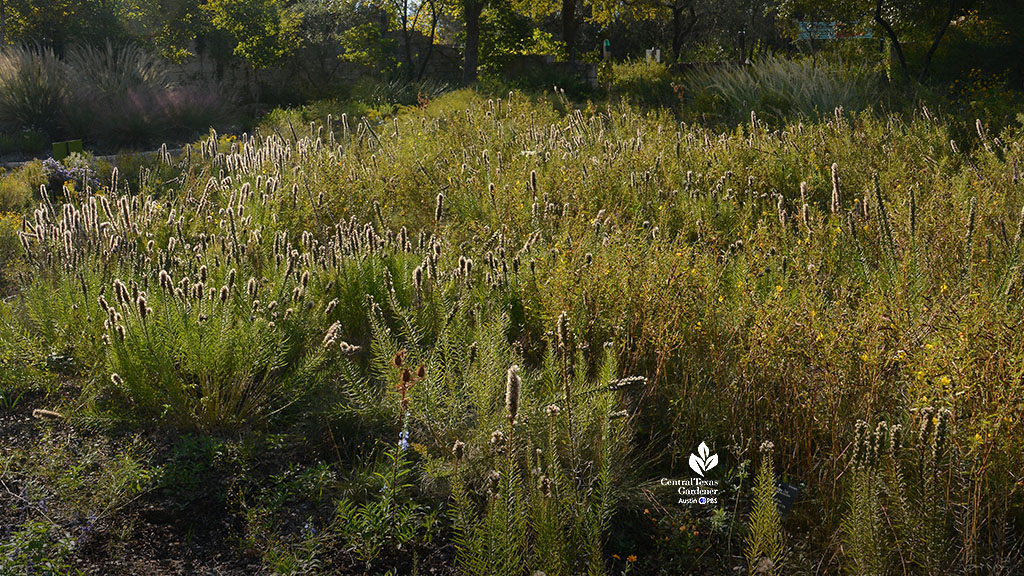
Winter’s on the way, tempting gardeners to tidy up the minute plants turn brown. Let’s spin that idea! Seed heads feed small birds; native clumping grasses harbor butterflies and little creatures; leaves blanket firefly larvae and other beneficial insects.

So, let’s embrace winter’s garden gifts with Shaman Jesus Garcia of the Herbal Action Project, an ecology restoration initiative, nature education for children, and a healing space for all. This week he joins John Hart to explain why to leave the leaves and fallen twigs.
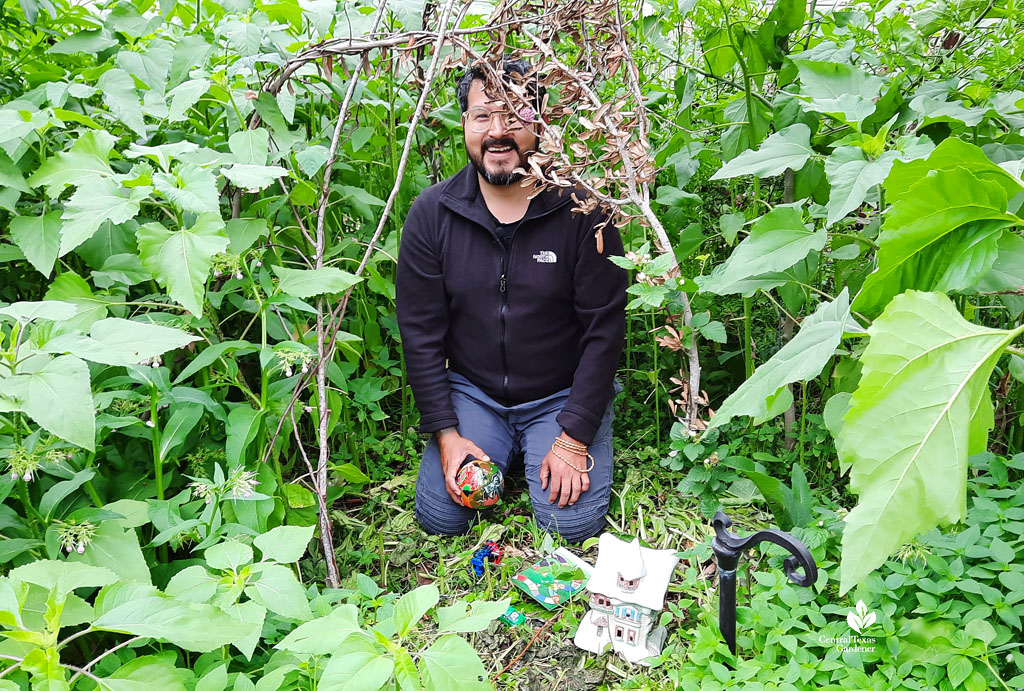
“This is, of course, connecting to the insect life, and how we want to support their young, and their eggs, and their particular kinship to the garden itself, and how we get to see that from a different perspective as a human, how life wants to thrive, and be cultured, and to be connected in a safe space. The way that children also want to be connected in safe spaces as well,” he tells us.
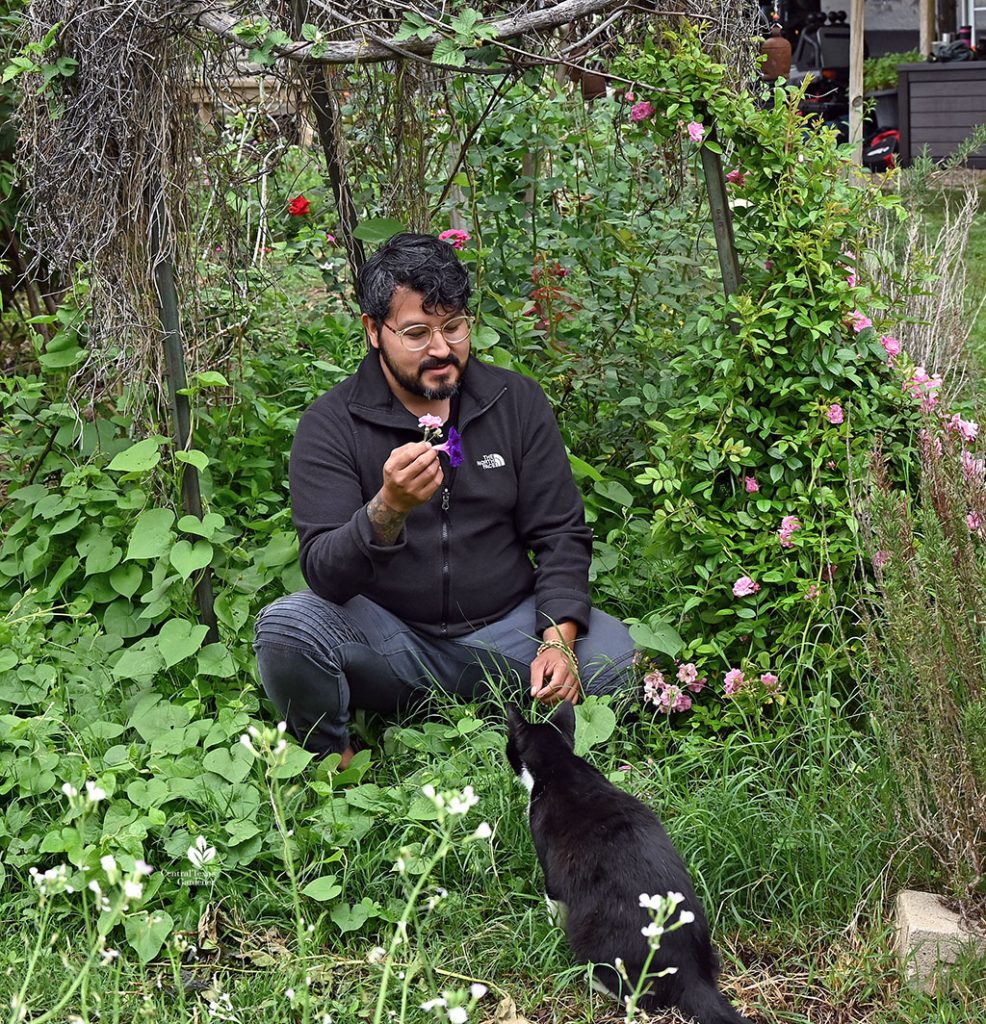
Watch our delightful spring visit with Jesus at Herbal Action Project!
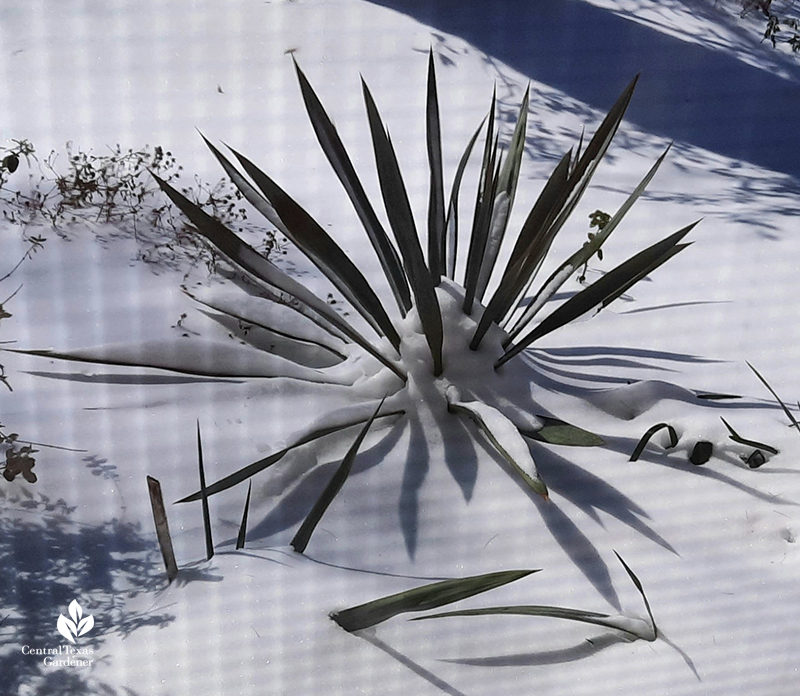
Leaves and mulch help insulate plant roots, and so do snow and ice, Daphne tells us this week.
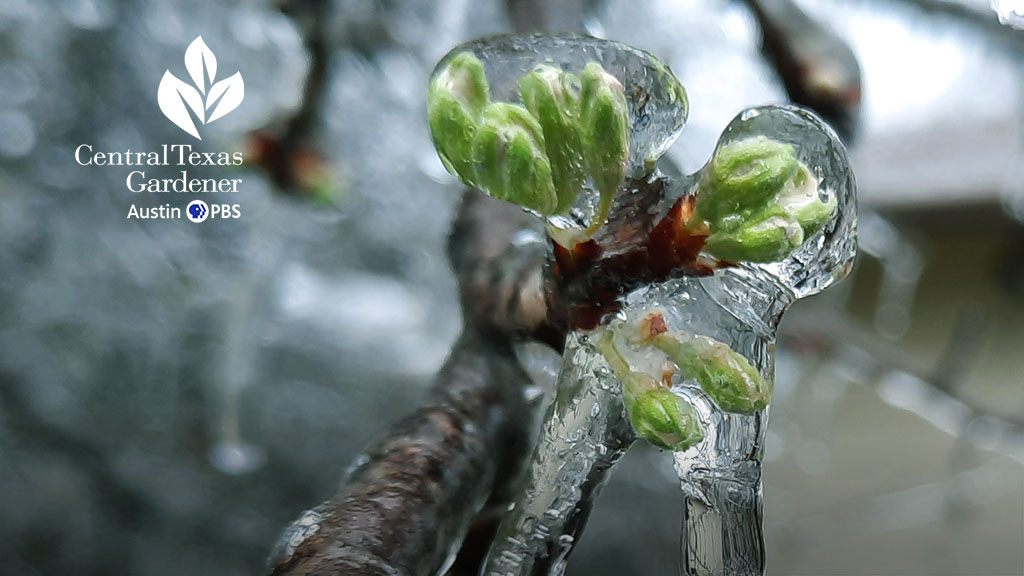
February’s ice storm sure taught me something. I figured I’d lost my Mexican plum flowers for good.
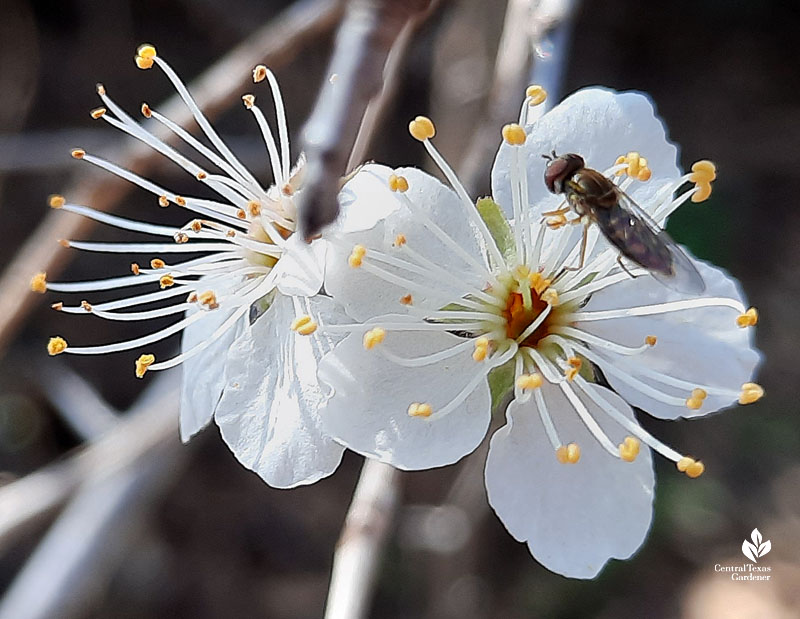
Instead, that icy coat protected them, and to my amazement, they fragrantly blossomed a week later for grateful pollinators.
Plus, we want to water plants ahead of a freeze. “Well-watered soil will stay warmer than dry soil in winter, providing a cozy environment for roots to stay protected when the air above is frosty,” Daphne reminds us. “Mulch also really helps with soil temperature moderation, so irrigating beds, then mulching, is a great way to protect plants from winter cold.”
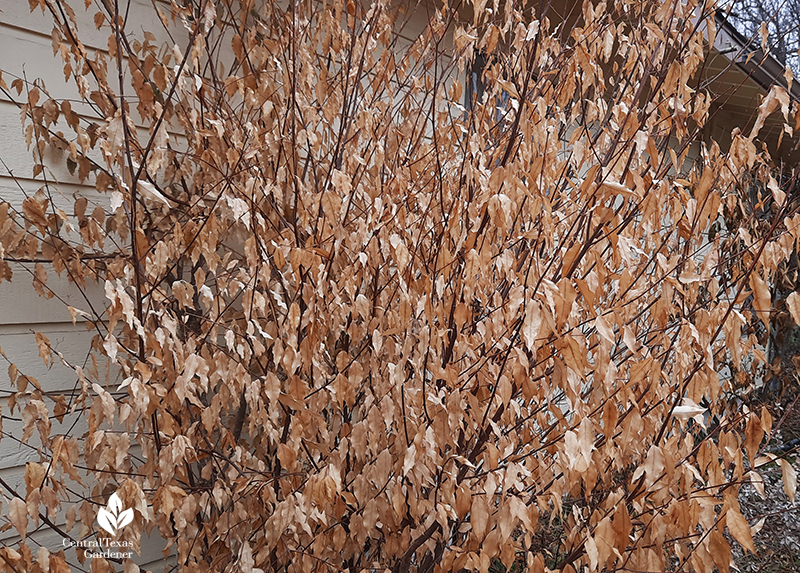
She also explains the term ‘root hardy.’ This refers to a plant’s ability to survive freezing temperatures by dying back to the ground in winter and emerging with new growth from the roots in spring. When cold weather extends into early spring, plants may take their time to rebound, but be patient!
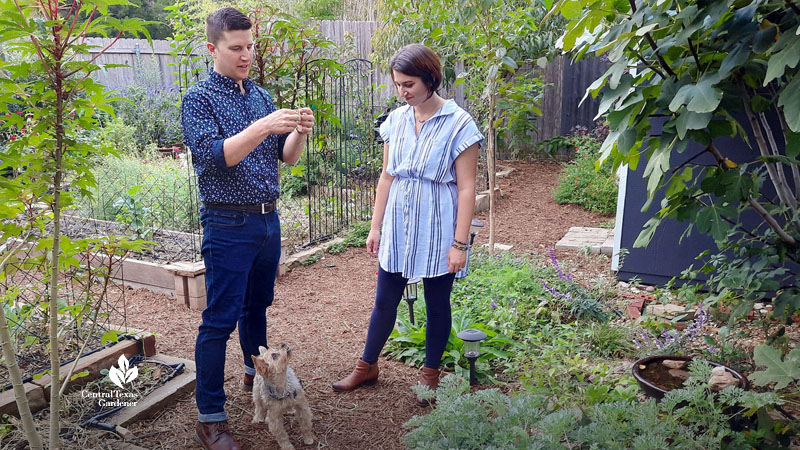
On tour, Kristin and Ryan Harvey’s backyard was overrun with bamboo and the soil was lifeless. They asked, “What do we want in our dream garden?”
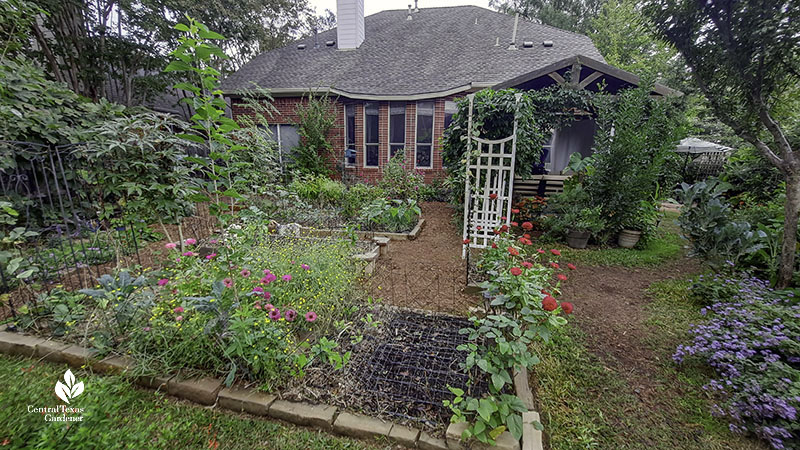
With permaculture techniques—including leaving the leaves and twigs for insects—they restored the bond between soil, plants, and wildlife. Now, every morning is filled with flowers, fragrance, food they harvest, and teas from fruit and leaves.
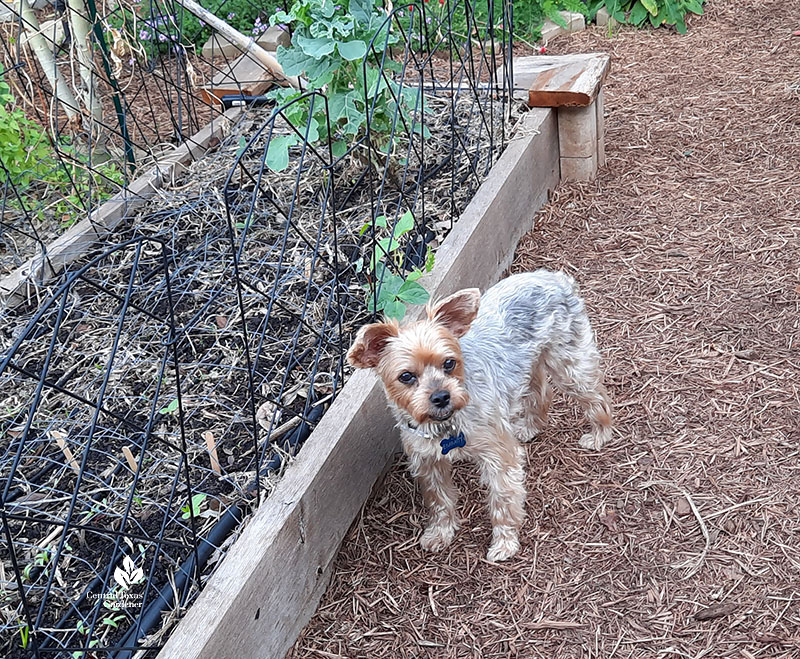
A few months ago, they lost their darling elder-pup Emmitt Smith, who LOVED to sample fresh vegetables from the garden. All of us at CTG extend heartfelt condolences to this little guy who brought even more joy to our day.
Read more about our visit last November!
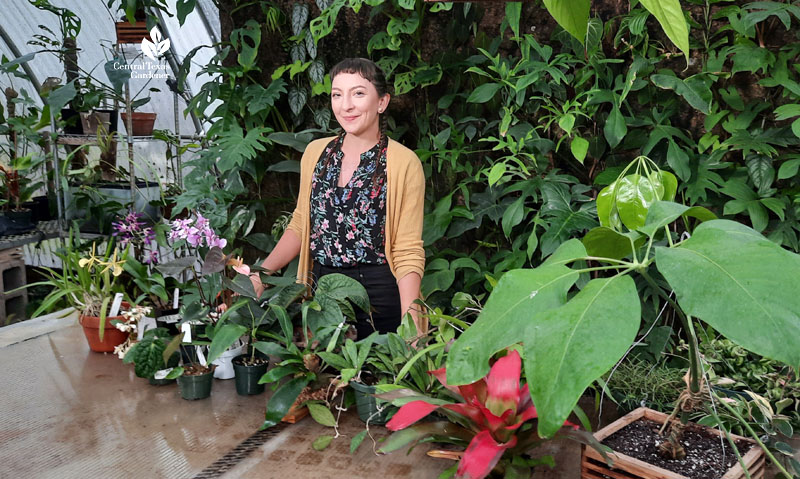
Winter or summer, houseplants bring our intrigue indoors.They’re our laundry-folding and dinner-prepping companions. Melissa Hagen-Wilson from Tillery Street Plant Company goes for bold foliage and bonus flowers with hoyas, anthuriums and bromeliads to dazzle us indoors.
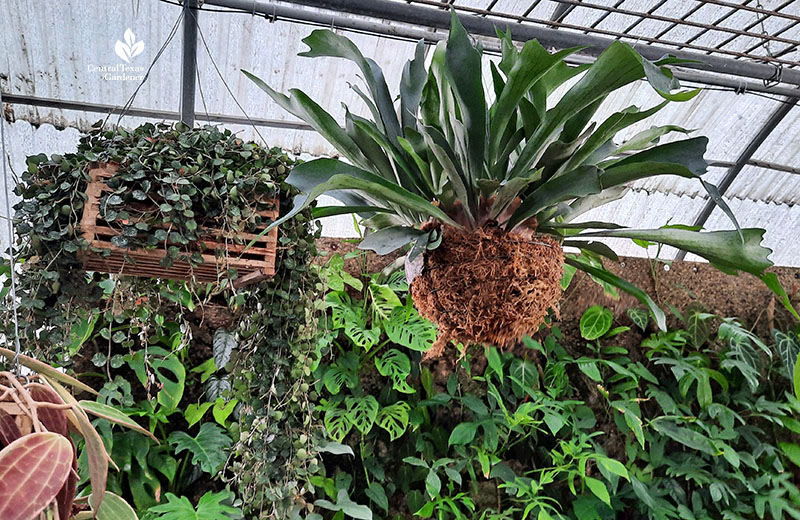
And power up foliar dimension with staghorn ferns, mounted on wood or in hanging baskets. Read (and watch) about our visit last March!
Watch now!
Thanks for stopping by! Linda
tags:

